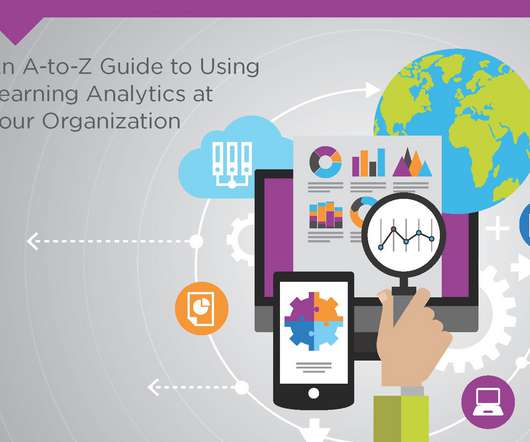Organizational Learning Tools
The Performance Improvement Blog
JUNE 21, 2012
What are the tools of organizational learning? As I’ve stated in a previous blog post , a high performing organization needs a comprehensive approach to learning and a set of tools to facilitate learning. A training program, or an educational event, or even a CEO’s speech about the importance of learning is not enough.































Let's personalize your content